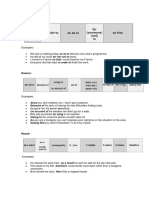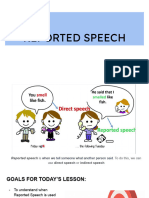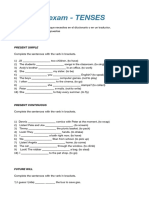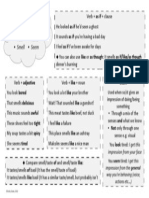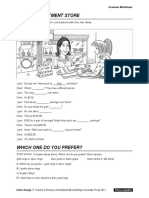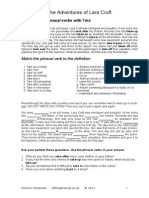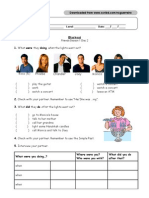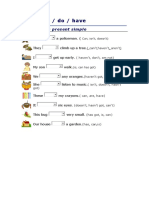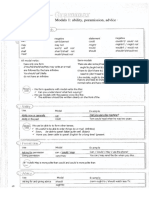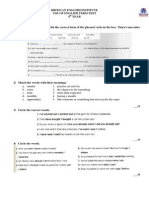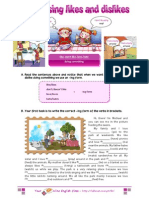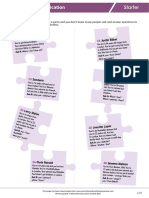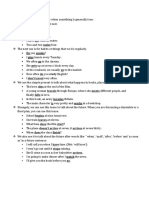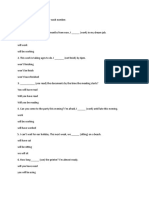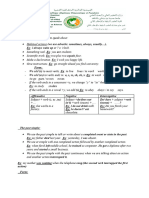0% found this document useful (0 votes)
611 views1 pageS/ /Z/ /iz/: Pronunciation of - S Ending
The document summarizes the present simple tense in English. It is used for habits, routines that occur regularly or things that are always true. The third person singular form takes an -s ending, with the pronunciation depending on the last sound of the verb. Questions and negatives use an auxiliary verb like "do" or "does" plus the base verb form without "to."
Uploaded by
titiCopyright
© © All Rights Reserved
We take content rights seriously. If you suspect this is your content, claim it here.
Available Formats
Download as PDF, TXT or read online on Scribd
0% found this document useful (0 votes)
611 views1 pageS/ /Z/ /iz/: Pronunciation of - S Ending
The document summarizes the present simple tense in English. It is used for habits, routines that occur regularly or things that are always true. The third person singular form takes an -s ending, with the pronunciation depending on the last sound of the verb. Questions and negatives use an auxiliary verb like "do" or "does" plus the base verb form without "to."
Uploaded by
titiCopyright
© © All Rights Reserved
We take content rights seriously. If you suspect this is your content, claim it here.
Available Formats
Download as PDF, TXT or read online on Scribd
/ 1







